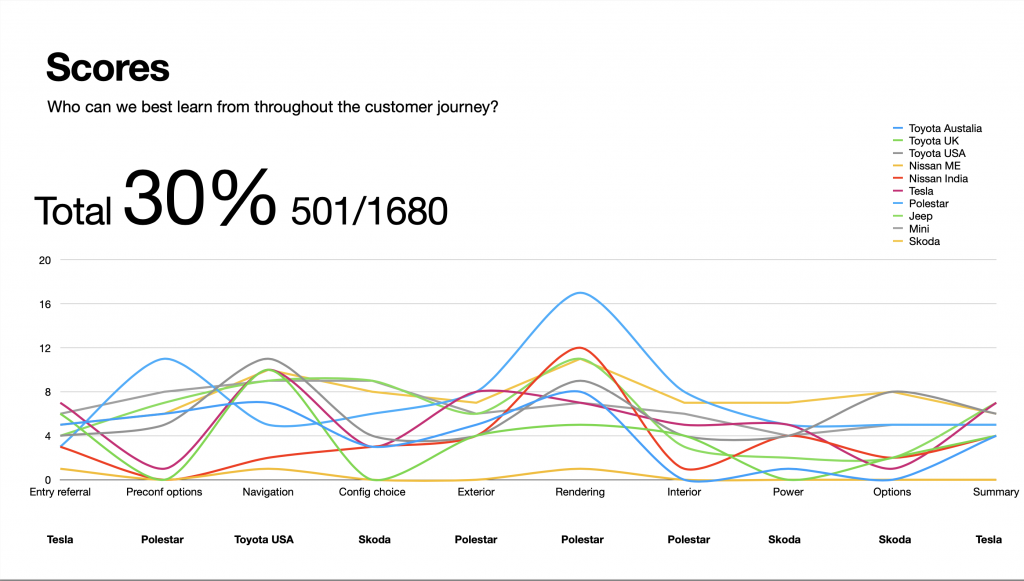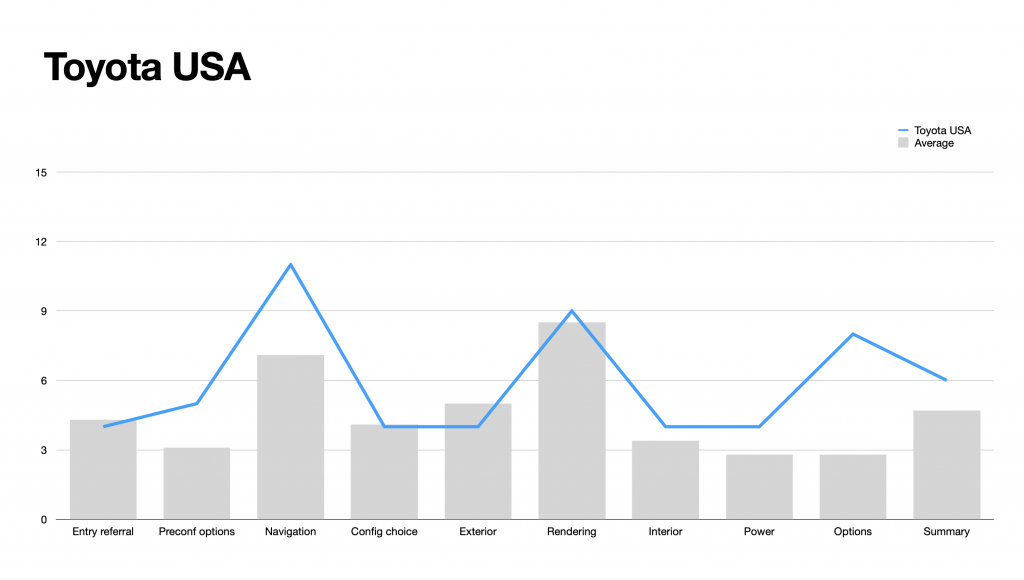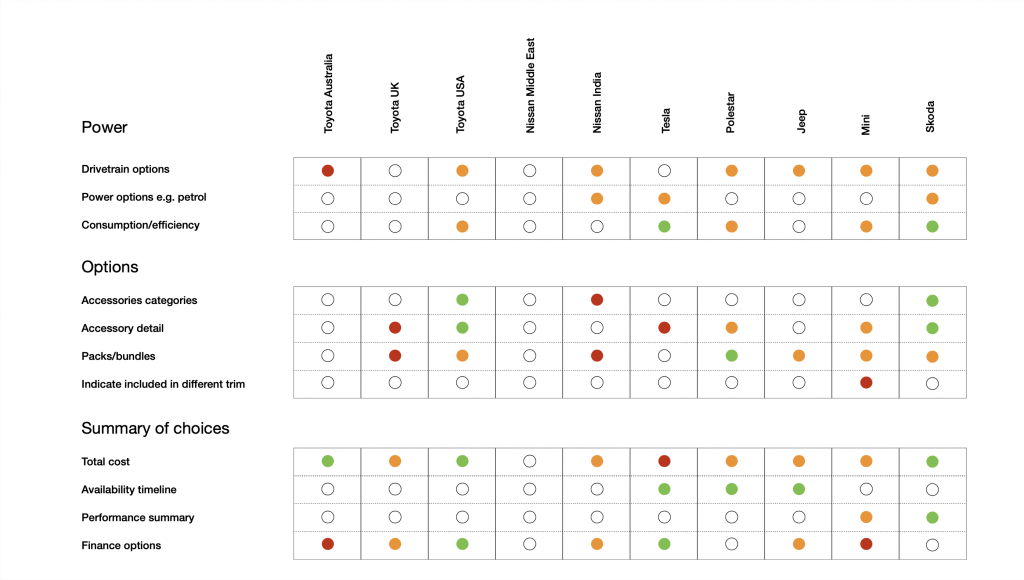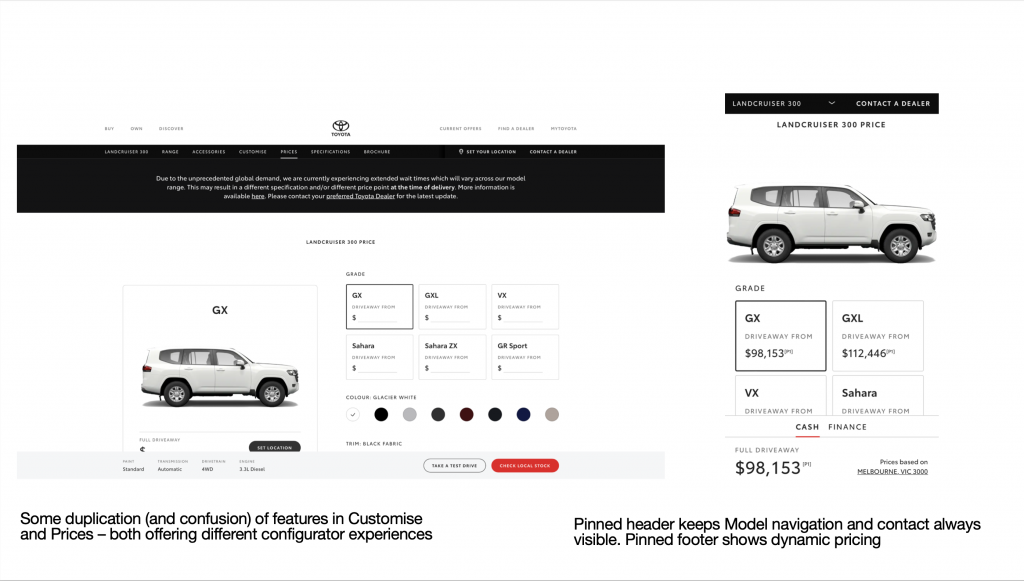
How do we compare to the competition?
Methodology
For many organisations knowing what the competition is doing is an ongoing task. It can feel difficult to understand exactly why they are ‘better’ or percieved to be better, It often results in playing catchup, creating services that match the parity of the competitor set.
By conducting a best practice review, the organisation can understand in detail where each competitor has specific features alongside the maturity of those features. It enables comparison of what is doing exact what, where and how well. And more importantly, it reveals where they is opportunity for your brand.
Let us look at the process in more detail:
- Review the customer journey framework, most typically the same as used in a Heuristic Review
- Create a long list of competitors – adding rationale to why they have been selected
- Work together on the shortlist, look for examples outside of the normal crosshairs – after all, nearly all copy each other and there’s little to learn
- Undertake the detailed review – scoring each feature for maturity, UI capture and annoation
- Analyse scores to create average per feature and leading competitor per journey stage
Outcome
With so many brands clambering to get ahead it can feel like a losing battle. A comprehensive best practice review looks in detail at individual features to provide an evidence-based approach.
By knowing where there are multiple (and specific feature/services) opportunities, organisations can review these against their customer needs. Just because there’s an opportunity does not mean it should be pursued.
Rarely does a single organisation own the best practice throughout the entire customer journey. By isolating scores to specific parts, organisations can learn from those doing the best job to understand how to outcompete them for that part of the journey.
Timeline: 6 weeks
- 1 week – review the Customer Journey Framework (features to be assessed)
- 2 weeks – identify competitors and rationale
- 6 weeks – conduct detailed audit, document scores
- 1 week – process findings and present recommendations





Move beyond copy and paste
Be targetted at meeting category parity and be fully informed where to differentiate
Evaluation & Benchmarking
Could our platform conversion improve?
Do you know how mature features are across your entire platform? Are you interested in where improvements need to be made to increase conversion – be that subscription, returning customers or sales
How do we compare to the competition?
Do you regularly review your competitors to play catchup? Does it feel like you’re always one step behind them in launching new features?
Is our customer journey fit for purpose?
Are you concerned areas in your customer journey aren’t up to scratch or generate poor experiences and costs for the organisation?